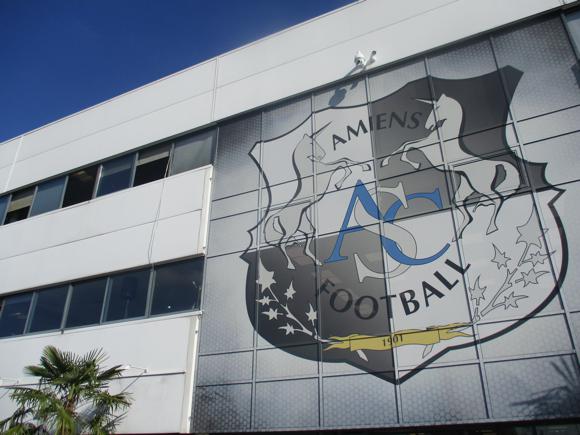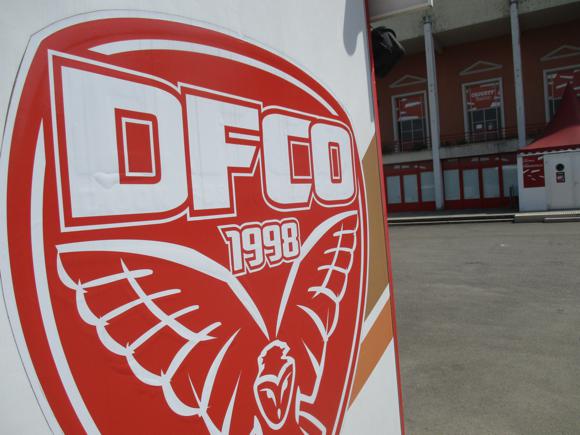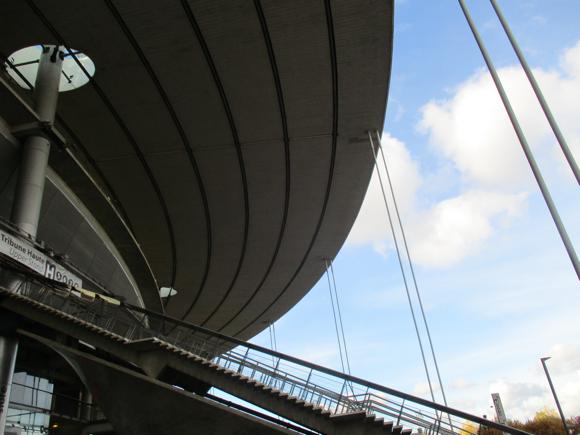A fan’s guide – the club from early doors to today
Promoted back to Ligue 1 in 2019 and 2023, relegated to Ligue 2 in 2024, FC Metz have only once come close to a title in 1998, losing out to Lens on goal difference.
Star of that season, Robert Pirès, has been one of a number of other later Premier League players to make their start at Metz. Louis Saha, Emmanuel Adebayor and Rigobert Song all ran out for les Grenats when they were a regular top-flight operation.
Flagship club of Lorraine, Metz joined Ligue 1 shortly after being formed in 1932, and again after World War II – but things only picked up properly when former motocross champion Carlo Molinari took over as president in 1967.


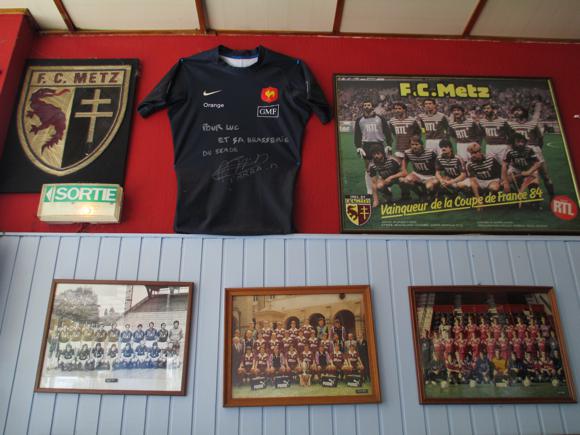

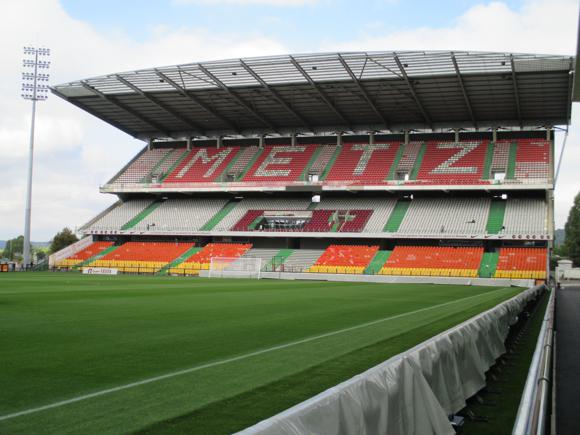
With stalwart defender Georges Zvunka, later Metz manager, and forwards such as Luxembourg international Johnny Léonard, 1966 World Cup goalscorer Gérard Hausser and former Serie A star Nestor Combin, les Granats put in creditable league campaigns and occasional European appearances.
French internationals such as Patrick Battiston, infamously clobbered in the 1982 World Cup semi-final, and Bernard Zénier came through the club in the 1970s but success only came a decade later.
Under ex-Metz players Henryk Kasperczak then Marcel Husson, Metz enjoyed the best period in the club’s history, bookended by French Cup victories in 1984 and 1988. Perhaps the most remarkable exploit came in October 1984. Trailing Barcelona 4-2 after the first leg at home, and 1-0 in the Nou Camp, Metz responded with four goals to knock out the Catalans. Key to the victory was the forward duo of Tony Kurbos and Jules Bocandé.

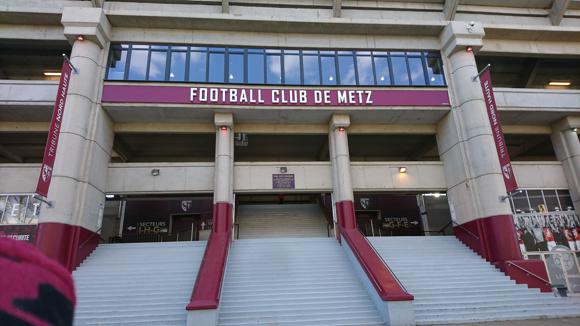
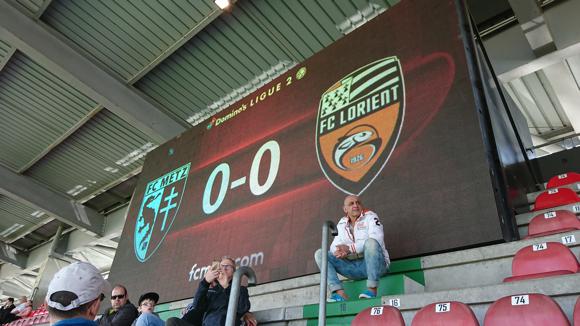
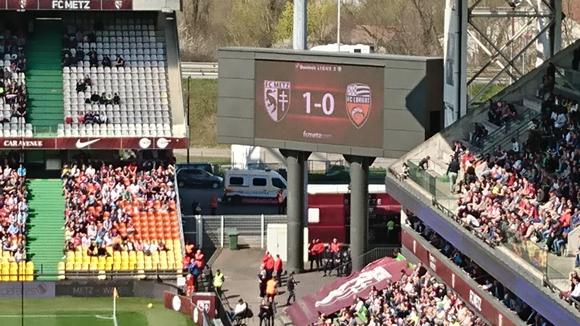
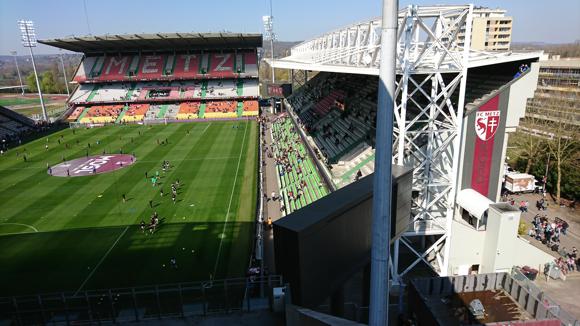
Metz maintained a string of top-six league finishes, but dipped after Husson’s departure.
A young Robert Pirès came through in the mid 1990s, coinciding with the return of centre-back Sylvain Kastendeuch, and the consistency of defensive midfielder Cyril Serredszum, all nurtured at Metz.
Les Grenats won the League Cup in 1996, then beat Sporting Lisbon in the UEFA Cup before falling to Newcastle. In 1997-98, having acquired speedy Belgian midfielder Danny Boffin, Metz led the French league for several weeks before falling to Lens during the run-in for the title, eventually decided on goal difference.
Players such as Pirès and Serredszum were quickly sold, Metz were incapable of even beating HJK Helsinki in the Champions League – and pretty much everything since then has been downhill. Relegation, after 35 seasons in Ligue 1, came in 2002.
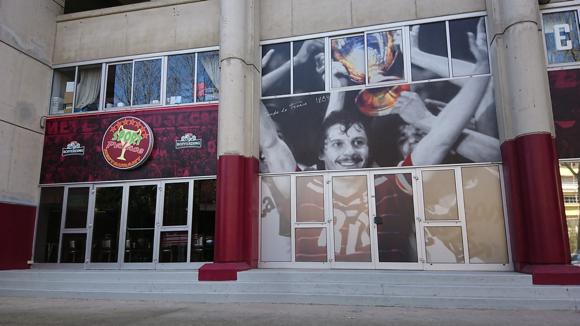

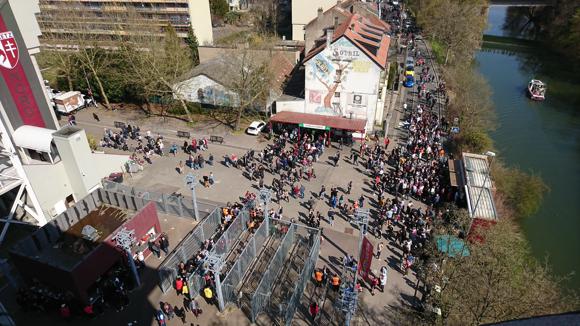
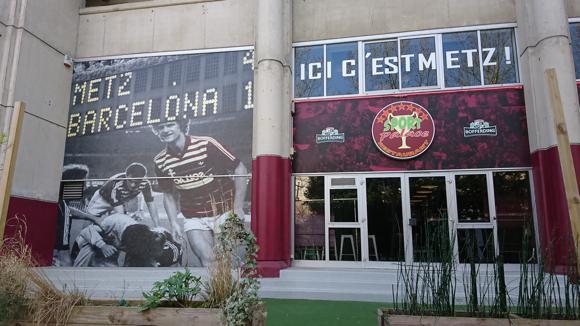
Great players, even Franck Ribéry, came and went, Molinari passed ownership over to Bernard Serin, but not even Sylvain Wiltord could lift the Messins out of Ligue 2.
In May 2012, the unthinkable happened, and Metz descended to the third-flight National. Bringing in the club’s former centre-back Albert Cartier as coach, Metz climbed straight back up to the second – and then, remarkably, back up to Ligue 1 the following season.
Crucially, Cartier’s team was built around home-produced youngsters such as later West Ham striker Diafra Sakho and left-sided defender Gaëtan Bussmann.
Beating AS Nancy in the derby, Metz went on to win the 2014 Ligue 2 title, attracting a near 14,000 average attendance to the Stade Saint-Symphorien. Fans enjoyed further clashes with Nancy in 2015-16, both clubs promoted – and both relegated within two seasons.



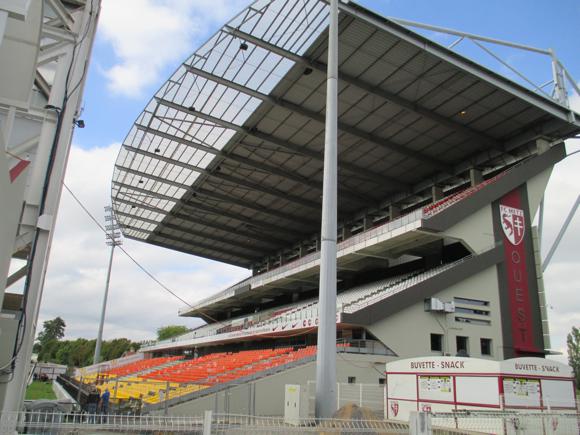
Metz spent nearly all 2017-18 season rooted to the bottom of Ligue 1. Gritty Corsican coach Frédéric Antonetti then took Metz by the scruff of the neck to push the club back up to the top flight at the first attempt.
Clinging on for two seasons, relegated after a third, Metz again bounced straight back in 2023 thanks to goals from Georgian international Georges Mikautadze, a hero of his country’s charming Euro 2024 campaign in which he was equal top scorer.
Brought back to Metz on loan for the last half of their Ligue 1 return in 2023-24, the Lyon-born striker couldn’t quite do enough to save les Grenats from yet another relegation. While it was his penalty that put Metz ahead in the play-off with Saint-Étienne, the visitors hit one back then sealed the host’s fate with a decider as penalties beckoned.

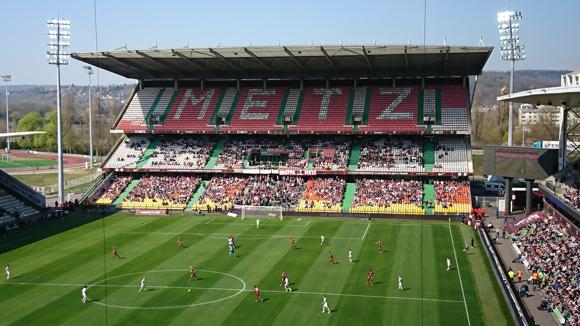
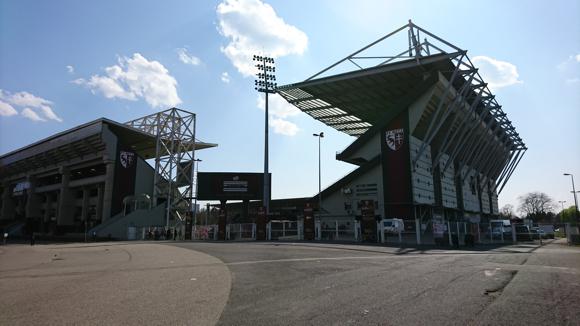

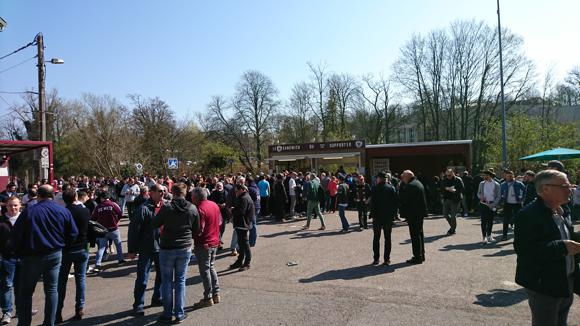
Stadium Guide
The field of dreams – and the story behind it






The Stade Saint-Symphorien, set on the island of the same name, was built a decade before modern-day FC Metz were formed.
Maurice Michaux, head of the local athletics association, was behind its construction, completed in September 1923. With the creation of a new professional football club, the sports ground was adapted to accommodate 10,000 spectators, 2,000 under cover.
Increased either side of the war, capacity climbed towards 28,000 as Metz became national and European contenders. A new stand was built behind the goal the year the Messins all but won the title, 1998, followed by complete modernisation in 2001.



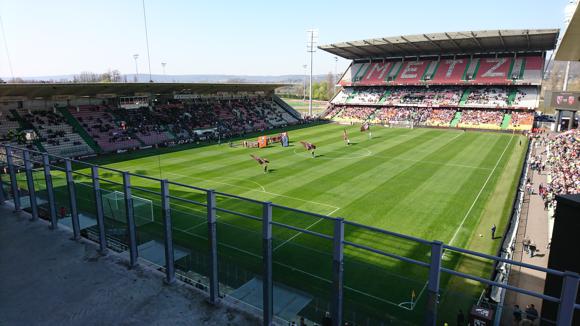


France have played two internationals here, one against Luxembourg, who have also used the Saint-Symphorien as a home ground.
A project to further modernise and expand the stadium, tied to Euro 2016, was put on hold when the east of France again missed out on hosting a major tournament. The club eventually knocked down the Tribune Sud/Moselle, reducing capacity to 20,000 until the work was completed in 2021. The Sud-Ouest corner was then opened a year later.
Taken together, this raised the current capacity to just shy of 29,000, all-seated. The other stands are the pricier Tribune Nord along the sidelines, and two-tiered Est and three-tiered Ouest behind each goal. Away fans are allocated sectors P and Q in the Tribune Est.
getting there
Going to the stadium – tips and timings
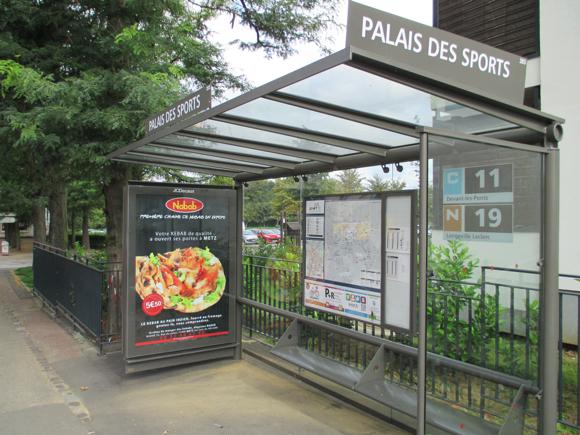
Bus 11 (every 30mins, every hr Sun) runs from rue François de Curel opposite Metz station to Palais des Sports (journey time 12mins, direction Félix Maréchal), via the central hub of République.
Both the station and stadium are south of the city centre, about a 15-20min walk from each other.
getting in
Buying tickets – when, where, how and how much

Tickets go on sale a month in advance. The club shop in the Tribune Nord (Tue 1.30pm-6.30pm, Wed-Sat 10am-noon, 1.30pm-6.30pm) also distributes over the counter.
You can buy online through the club, Francebillet, Fnac, Ticketmaster, and chains Carrefour and Auchan.
On match days, the ticket windows open 2hrs before kick-off – a €3 levy is charged on the day. A seat is otherwise €20 in the Tribunes Est or Ouest behind the goals, €40-€50 in the Tribune Nord.
what to buy
Shirts, kits, merchandise and gifts


The Boutique FC Metz (Tue 1.30pm-6.30pm, Wed-Sat 10am-noon, 1.30pm-6.30pm, match days) is behind the Tribune Nord. The current iteration of the home top for the 2024-25 season features a darker patch of the signature maroon over the shoulder and left sleeve, and a rather fearsome outline of Grayou the club dragon than the mascot that gets paraded around for selfies on match days.
The second kit is simply a work of art, a street map of Metz imposed upon a turquoise background with a red marker showing the location of the stadium. T-shirts, tote bags and baseball caps all sport the cross of Lorraine, some also Grayou the dragon, symbol of the city.
Where to Drink
Pre-match beers for away and casual visitors




Before you reach the island, the Café Le Nancy (1 bis avenue de Lattre de Tassigny) is a small, locals’ bar, Metz-friendly despite the name – note the paintings in the main window.
The place for pre-match drinks is the Brasserie du Stade (2 rue du Stade), tucked in from the riverbank near the stadium, its walls covered FC Metz memorabilia.
The club restaurant, the former Sport Palace gentrified in February 2020 as bistro-like Tifo, behind the Tribune Nord, is members-only on match days.
Fans congregate between Le Palais du Kebab and Le Sandwich du Supporteur by the river. Reserve for Tifo, also open Tue-Fri lunchtimes and for away-match screenings, on +33 87 22 79 85.



